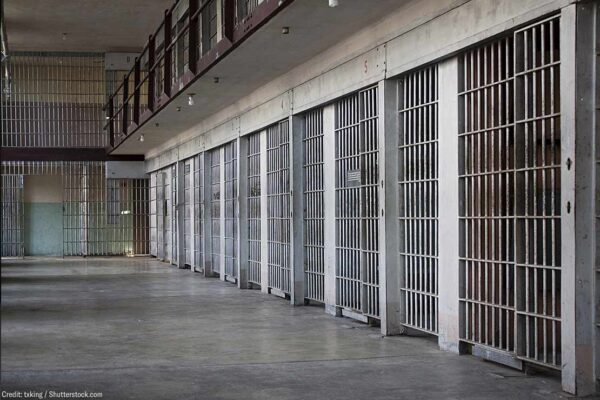This op-ed was originally published by the Sarasota Herald-Tribune.
John Hodges supports himself on a limited income with his power washing business. He is also experiencing homelessness. But like thousands of others in Florida, Hodges is sitting in jail because he can’t afford his unconstitutionally set bail.
In August 2021, Hodges was arrested and charged with stealing a bicycle from a porch. Legally, he is innocent. We don’t know yet what actually happened – that is what a trial is for. In practice, however, Florida’s bail system has already taken Hodges’ freedom away.
Hodges’ bail was set at $5,500. He could afford $1,000. He proposed the court substitute the $5,500 requirement for this lower amount and add other conditions – pretrial supervision, alcohol and drug testing, and attendance at substance abuse meetings. These conditions would equally satisfy any concerns and facilitate his release. But the court denied Hodges' request and kept his bail at $5,500 without explanation or serious consideration of his proposal.
This is an unconstitutional practice.
Florida has high pretrial detention populations: currently there is a daily average of nearly 34,000 people sitting in Florida jails awaiting their day in court. This drives overcrowding in many county jails, and those who are eligible for release but are too poor to afford cash bail account for a significant amount of the jail population. More than 12,000 presumptively innocent people will be locked up tonight and kept away from their families because they cannot afford to pay their bail.
The practice of setting unaffordable cash bail often violates the Constitution. It is expensive to taxpayers, ignores effective, community-based alternatives and wreaks havoc on the lives of individuals and families.
Monetary bail began as a system to ensure people returned to court as their case progressed. However, it has morphed into unjust and unconstitutional wealth-based incarceration without due process.
Last November, the American Civil Liberties Union (ACLU) of Florida filed a class action lawsuit on behalf of Hodges and 10 others after judges in Manatee and Sarasota counties set unaffordable cash bail amounts –even though these judges were explicitly made aware that the individuals were unable to pay.
The class action lawsuit was dismissed by a Florida court on technical grounds. The ACLU of Florida refiled the 11 cases individually. The Florida court did not provide relief in any of the cases, and it offered no explanation as to why the unaffordable amount was the only bail figure that would work. Still, the ACLU of Florida continues to fight for Hodges and others who languish behind bars simply because they can't afford their cash bail.
In the case of Hodges and many others, prosecutors did not perform their constitutional duty to establish reasons why an affordable bail, coupled with pretrial supervision or other nonmonetary conditions, could not clearly substitute for a cash bail to serve the state’s legitimate pretrial interests. They ignored solutions that would benefit everyone.
Our Constitution’s due process clause protects people from the unnecessary deprivation of rights, including pretrial detention. And Florida’s pretrial detention statute provides a way to detain people who are perceived to be particularly dangerous. Yet prosecutors rarely employ this tool. They simply request an unaffordable bail amount with the intent that it will accomplish the same detention outcome – or they are recklessly ignoring the fact that it may do so.
In Manatee and Sarasota counties, the average cost of jailing an individual is about $90 a day. With at least 500 people being held in pretrial detention simply because they cannot afford bail, taxpayers are spending $45,000 every day to warehouse people who have not been convicted of a crime. The numbers are significantly higher in other counties that detain more people or have higher incarceration costs.
Alternatives to unaffordable bail are plenty. Court reminders, travel restrictions, pretrial supervision, drug treatment and, when necessary, home detention work well and keep folks out of jail.
Meanwhile, the Bail Project – a national nonprofit organization that pays bails for those who can't afford to do so – is single-handedly proving that personal financial stakes are unnecessary. Those who have their bails paid still appear for their court dates, and they act in a law-abiding manner as they wait to do so. The only difference is that they are able to reunite with their families and maintain employment while awaiting their day in court – thanks to the Bail Project's commitment to paying bails for those who cannot afford them.
The decision to set unaffordable bail has devastating effects. For many, unaffordable bail means losing their jobs, housing and children. But because most people who are detained will ultimately be released to our community, access to employment, housing and loved ones are essential to guard against recidivism.
In addition, prosecutors often use detention to secure pleas with lengthy sentences. Some people plead guilty just to get out of jail, and their families pay the price. In some cases, unaffordable bail leads to years of horrific abuse, irreparable harm and trauma – and right now it is also leading to a greater risk of contracting COVID-19. We have witnessed too many horror stories.
Wealth-based incarceration without due process is unjust, unfair and un-American. That's why as our nation grapples with conversations about criminal justice reform, safety and the treatment of disadvantaged people, Florida should end its reliance on unconstitutional bail practices and ensure that all people have due process under the law.

